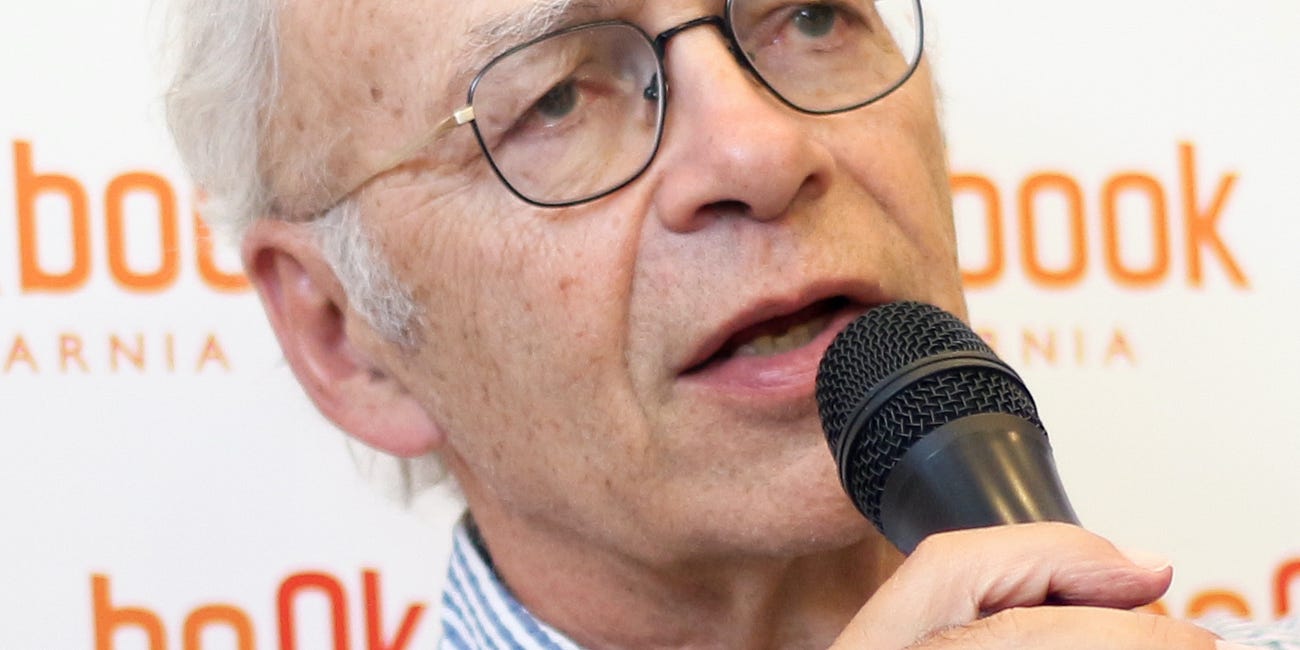Hello to a few new subscribers, who seem to be expressing an interest in what I do here, like some erstwhile rugger scrum. Well, lads, shoulders to the flank: this push will help us win the ball.
This essay is a statement of something I believe strongly in, and it’s an intro to some of the related topics I’ve written about in the past two years: more or less since Russia invaded Ukraine. Welcome, one and all.
With apologies to The Guardian newspaper: in the course of a royal visit in 2022, the Duke and Duchess of Cambridge inspect the Jamaican army from the back of a green Land Rover acquired by the Jamaican army on 28 February 1962 and used later that year by the Duke’s grandmother, Queen Elizabeth II. It bears a singular registration mark: 3JDF28. JDF stands for Jamaica Defence Force and it remains one of very few vehicles on the island of Jamaica to retain this pre-independence style of military registration plate. Nowadays, Jamaican cars bear registration marks like the following:


What kind of an image is it that you think gets projected when James Bond steps into an Aston Martin? The ultimate suave English spy driving the ultimate suave English motor car? What when he steps into a Lotus Elan? Another suave English motor car? And what when he steps into a BMW? You can argue all you will, but when he stepped into that BMW for the first time in Tomorrow Never Dies, (equipped with missile launchers, caltrops, self-inflating tires, and a near-impenetrable body—all care of Avis—to which he returns it, vertically) he certainly set my heart a-flutter: the Atlantic Hotel in Hamburg is one of my favourite sojourns. It’s also where, on the pavement outside, my ex ran down Udo Lindenberg on his skateboard. Fond associations. But, to come to the point: there is a very strong association between a prominent individual and the car he drives.
The Duke of Cambridge did not drive that Land Rover when he and the Duchess visited Jamaica. Instead he was driven around in it by a chauffeur. When you’re not in a taxi or an Uber, the fact of being driven in any car by a chauffeur is also a statement loud and clear: you are a guest.
But, there is a strangeness to this hospitality: these guests are driven around in a vehicle that their forebear’s administration purchased from their forebear’s principal kingdom in order to rule their forebear’s minor kingdom. Six months after it was bought, Jamaica achieved independence from the United Kingdom (and kept the Land Rover).
There it was, 60 years later, ferrying around the queen’s grandson and his wife. They were on a goodwill tour that turned, not sour, but in which the Jamaican prime minister laid some things out to which the Duke could but nod his nervous assent: Jamaica would like to ditch his father as head of state. And, more than that, they want payment.
In 1958, Jamaica became a province of the Federation of The West Indies, a short-lived bundling of British Caribbean possessions into some sort of remnants class, a vain endeavour to tie to the British motherland a pot pourri of island nations that Britain had owned and exploited with unrestrained evil since acquiring them from a smattering of other colonial nations, like Spain. Yes, Jamaica was once Spanish, rejoicing under the name Santiago.
In effect, the details are unimportant; at least I think so, because I’m a lawyer, and lawyers have long lived in a world of fantasy and construct, although it is their fantasies and constructs by which the world directs its acts. The first such construct is the myth, albeit a persuasive one, that a contract is a meeting of the minds amongst its parties. I say amongst advisedly, because, for all the classic model is that a contract brings together, thus being between (be-tween—the twain, the two), two parties, it is possible to have contracts with any number of parties. And, in, say, a tripartite agreement, the notion that the three signatures at the bottom constitute a meeting of the minds of the three parties starts to stretch the imagination somewhat. The more parties there are, the more stretched the imagination becomes in holding to the fiction that they have all reached a meeting of the minds. However, the parties whose rights and obligations get affected by a contract are never just two in number: if we accede to modern practice and refer to those who are affected using the term stakeholders, then stakeholders can run into the thousands, or even the millions, regardless of how many signatures figure at the bottom of the bit of paper.
But the law does not stop there in its inventiveness regarding fictions and constructs. First, it sets down principles by which those who breach their contract are liable in what are called damages. (Let me immediately scotch a rampant misunderstanding of this terminology: if you scratch my car, a material object, it will sustain damage (and, if you scratch two cars of mine, they will both sustain damage—not damages); when I go to the coachbuilder to repair the damage, I will be presented with a bill, which I would not have been presented with had you not caused the damage. I therefore suffer a loss. The measure of my loss is the cost of putting right the damage that you occasioned. If you refuse to reimburse me my loss, I will sue you for damages (note the s), which is the amount that I ask the court to award to me in order to restore my situation to one in which I would have been if you had never scratched my car (or cars): damage causes loss, which is compensated by damages. You can use harm as a substitute for both damage and loss, but not for damages.)
The principle, therefore, is that, if you cause me loss, you owe me. Now, there is another principle that is also worth bearing in mind, and that is called unjust enrichment. If I render a bill to you for the supply of translation services and you inadvertently pay it not once, but twice, then I must repay you the second payment. To not do so is to benefit from your error and to be unjustly enriched, because my services are already covered by the first payment. It is an entrenched principle of law that those who receive payment without proper justification must return the payment unduly received.
Well, the astute among you will already have divined where this is going and, in case you haven’t, here’s a clue: I am a rabid anti-imperialist. Not because I hate my two countries—the UK and Belgium, both of which have been outrageous colonial masters—because I do not hate these countries, I love them. But I do not love them dearly enough to forgive them their heinous transgressions of the past, or, indeed, of the present. It is one thing to be patriotic, and quite another to allow one’s patriotic love of one’s country to function as a panacea, a cure-all for every sin that country has ever been guilty of.
The fictions that treat nation states differently from major corporations, and that treat major corporations differently from minor corporations, and that treat minor corporations differently from married individuals, and that treat married individuals differently from single individuals, and that treat single individuals differently from children, do not mean that the principles of law should not fundamentally apply to them all as if they were all to be treated the same. The argument that we make the rules, so the rules do not apply to us is the very best reason to respond with then you should not make the rules. If the response to that is that Graham, you don’t understand how the world functions, then my response to that must be Make the world function fairly, and I will understand how it functions.
Let us suppose that I don a striped jersey, not unlike this one:
Culture wars? What about war culture?
“If someone breaks into my house they’re getting shot.” (Kamala Harris to Oprah Winfrey.)
and break into your house and, by a stroke of luck, do not wake you and you do not come down the stairs and blast me to smithereens with your double-barrelled shotgun, but, perchance, that I drop from my pocket a calling card announcing my name and address. Presently, you find it, alert the police and they come a-knocking and find your silverware in a sack in my cellar. They clamp my wrists in irons, and lead me away sullen-faced to be arraigned before the Assizes. At the Assizes, I will undoubtedly be convicted of the felony of burglary (assuming it was night-time) or of house-breaking (if it was daylight) and be ordered to restore to their rightful owner the objects that I has purloined, m’lud. I will be ordered to return the loot.
Well, what Andrew Holness, the Jamaican prime minister, was trying to convey to the Duke of Cambridge upon the latter’s visit to his country in 2022 is that Jamaica wants the loot back. And, although he didn’t quite frame it in such language, the indignation that seems to rise in the hackles of the British when ex-colonies come knocking at their door to ask for compensation for the travails, and indignities, and iniquities, and injustices meted out by their former colonial masters, is out of place, for it is not with a begging bowl that they do so, it is with a raft of English legal principles.
The response that that was all a long time ago and there is no way we can respond to these demands in our modern age—independence was long ago, comes over so lame when one considers the 301 years during which Britain occupied Jamaica as its own property, and imported to it slaves in abundant number, primarily from countries like Benin. And so, this is no burglary, liability for which can be deemed to expire after a paltry prescription period, for a loss likely covered by insurance in all events. These, instead, are people’s lives.
To steal a life is to be equated to an act of murder, and there is no prescriptive period on murder. Not anywhere. And certainly not in the United Kingdom. Against this, we see the stoical response on the part of nations such as Jamaica, like the existence of this military Land Rover as a symbol of imperial power—with its neatly painted white-walled tyres—coupled with pictures of the Duchess reaching through a chain-link fence to grasp the hands of local schoolchildren (all very sweet, but—seriously—a chain-link fence?) The royalist, imperialist apologists may well brush off such visual gaffes, and they do. And they brush off the legal principles that form the foundation of much of English law: the fiction of the meeting of the minds:
We want freedom and fear slavery
Along his path to London, Karl Marx wrote part of his Communist Manifesto in Brussels, at the sign of the Swan on its Grand’ Place. Brussels did nothing to ameliorate his handwriting.
the fiction that the signatories to a contract are the only ones it affects:
and the fiction that unjust enrichment does not extend to profits from slave-bashing.
Much of the wealth of today’s richest people was not earned by them, but inherited. I also inherited, from my father. A modest sum, and it was many years ago. I’m not against inheritance, but the most important form of inheritance does not come as a bank balance. It comes in the form of tradition, and memory and cognisance of where one has come from and where one wishes to head. When my father died, the first thing his executor had to do was pay his liabilities. In Belgium, if he had not done that, then I would have inherited the liabilities as well as the surplus. It is the law. Death does not excuse debt. So, yes, if Britain’s colonial shame lies in the dim and distant past, so, what? The deaths of our forefathers cannot, by yet another fiction of the law, be deemed to have absolved us of their debt. And, if you deny that any debt is owed to Jamaica, then allow me to express great sorrow for those whom you are exploiting today, for Jamaicans are among them.
If you would like me to start us off on this great act of national contrition, then I have already made a start, and you can read about it here:
Please give: you'll be paid back, so that you can give again
Image: Mr Abs Ngum. He’s sitting in the back of a safari truck at Fathala Park in Senegal. Safaris have been a growing industry sector in The Gambia and neighbouring Senegal over the last ten or 20 years. If Abs’s taxi venture succeeds, he’d like to branch out into safaris, offering safe, secure, knowledgeable tours to western tourists keen to see local…
I practise what I preach: I reached into my overdraft to help someone in a former British colony. I say this not in order to brag, but in order to forestall the critics.
And, if you want more of what I preach, you can read it here:
Peter Singer: luxury is immoral
A few years ago, I wrote a poem, entitled Come. And go. Not much of one, but you may like to read the full thing here, and it’s also in French:
There, that should keep you busy.










Agreed Graham. But I do not hold that we must pay for the sins of our fathers. Yes, If I profited, unjustly from the sins of my personal father, I might feel indebted. But to pay for sins committed 200 to 500 by people I never knew and would have condemned had I been alive then? No, I feel no indebtedness owing.